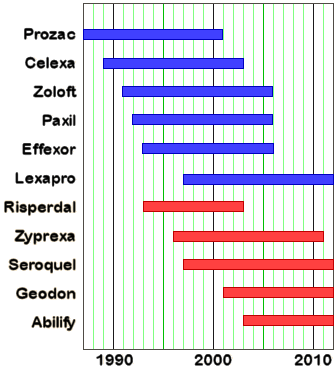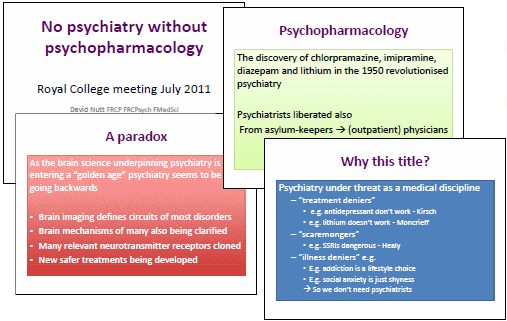I find myself perseverating on the concept of the pipeline –
|
pipe·line
noun
1. a long tubular conduit or series of pipes, often underground, with pumps and valves for flow control, used to transport crude oil, natural gas, water, etc., especially over great distances.
2. a route, channel, or process along which something passes or is provided at a steady rate; means, system, or flow of supply or supplies: Freighters and cargo planes are a pipeline for overseas goods.
3. a channel of information, especially one that is direct, privileged, or confidential; inside source; reliable contact.
verb [used with object]
4. to convey by or as if by pipeline: to pipeline oil from the far north to ice-free ports; to pipeline graduates into the top jobs.
idiom
5. in the pipeline,
a. Informal. in the process of being developed, provided, or completed; in the works; under way.
b. Government Informal. [of funds] authorized but not spent.
|
 The pipeline isn’t a medical term to me. I don’t recall hearing it until recently, and I don’t remember even thinking about such a thing as either an Internist or a practicing Psychiatrist. It’s a familiar way of thinking, of course, but not in Medicine. As a kid, I could identify every model of every automobile on the roads and was excited to see the yearly offerings of new models and styles. It was a 1950’s way to be. And I was an early arrival to the home computer world [1978] and kept up with new hardware and software advances for a pretty long time. Then they got where they worked fine and I stopped caring about anything except the price. I actually became a person who rode the trailing edge of technology, a version 2.0 guy, because the leading edge always seemed to have glitches [and I still configure my screen to look like Windows 3.1]. I think I’m generally a trailing edge doctor, sticking to the tried and true until the newer drugs have stood the test of time. I guess I think of the current, proven, therapeutic armamentarium as what’s available to the patient in front of me. The future is neither guaranteed nor pertinent.
The pipeline isn’t a medical term to me. I don’t recall hearing it until recently, and I don’t remember even thinking about such a thing as either an Internist or a practicing Psychiatrist. It’s a familiar way of thinking, of course, but not in Medicine. As a kid, I could identify every model of every automobile on the roads and was excited to see the yearly offerings of new models and styles. It was a 1950’s way to be. And I was an early arrival to the home computer world [1978] and kept up with new hardware and software advances for a pretty long time. Then they got where they worked fine and I stopped caring about anything except the price. I actually became a person who rode the trailing edge of technology, a version 2.0 guy, because the leading edge always seemed to have glitches [and I still configure my screen to look like Windows 3.1]. I think I’m generally a trailing edge doctor, sticking to the tried and true until the newer drugs have stood the test of time. I guess I think of the current, proven, therapeutic armamentarium as what’s available to the patient in front of me. The future is neither guaranteed nor pertinent.
One of my major complaints about psychiatry for the last ever-so-long is that everything has been about the future. I used to joke about it. I’d look at the list of topics at a meeting and break out in a dialog like I was talking to a patient. "Ms. Smith, I know you’re depressed and the medication you’re on doesn’t seem to be helping, but I just went to a meeting where I heard about promising new horizons in novel innovative treatment-resistant depression and at some as-yet-unknown future date, perhaps there will be yet another breakthrough that will…" I stopped doing it because my friends started rolling their eyes with a "there he goes again" look on their faces. But I was actually serious. The DSM-III launched an era of "future-think," and when Prozac came along, the field acted as if the future had arrived. As the antidepressants began to flow [from the pipeline], indications began to sprawl and minor differences among them became the front burner topic. The same was true of Risperdal, another breakthrough, and the atypicals poured out of the pipeline – more indication sprawl, more obsessing about small differences.
 Those drugs are helpful when used with realistic expectations in appropriate cases with a healthy respect for their risk-benefit ratio and a watchful eye for the idiosyncratic and regular side effects as well as withdrawal syndromes. But that’s hardly how they were used. They successfully replaced and far outsold the older drugs based more on advertising than efficacy or diminished toxicity, and as we now know, cascading scientific misadventure. Psychiatry essentially became these drugs, abetted by parallel changes in insurance reimbursement. I suppose the steady flow of new variations on these two themes did look like something flowing out of a pipeline delivering a seeming endless supply of new medications supported by a new industry to test them – the Clinical Research Organizations.
Those drugs are helpful when used with realistic expectations in appropriate cases with a healthy respect for their risk-benefit ratio and a watchful eye for the idiosyncratic and regular side effects as well as withdrawal syndromes. But that’s hardly how they were used. They successfully replaced and far outsold the older drugs based more on advertising than efficacy or diminished toxicity, and as we now know, cascading scientific misadventure. Psychiatry essentially became these drugs, abetted by parallel changes in insurance reimbursement. I suppose the steady flow of new variations on these two themes did look like something flowing out of a pipeline delivering a seeming endless supply of new medications supported by a new industry to test them – the Clinical Research Organizations.
 The other thing that looked like a pipeline was the flow of money into the pharmaceutical industry’s coffers. By 2009, the antipsychotics were the most profitable drugs in the country, with antidepressants not far behind – statistics I still find hard to wrap my mind around. So I suppose this flow of variations on a couple of central themes did give the illusion of being a pipeline delivering an endless flow of new psychoactive drugs to a waiting cadre of customers, eager for their arrival. The pipeline illusion seems to have caught on with the subset of psychiatrists who were actively participating in this pharmaceutical gold rush and promoting the steady flow of new arrivals. When it became clear that the industry had reached the bottom of creative versions of the couple of drug classes involved and began to pull out of this market, there was a collective groan heard round the world. From my perspective, the Opening Ceremony was delivered by Stephen Stahl of the Neuroscience Research Institute who blamed the pull back from CNS drug development by the pharmaceutical industry on a group he called pharmascolds, a pseudocommunity in which he would likely include me [and you] [myopia – uncorrected… August 2011].
The other thing that looked like a pipeline was the flow of money into the pharmaceutical industry’s coffers. By 2009, the antipsychotics were the most profitable drugs in the country, with antidepressants not far behind – statistics I still find hard to wrap my mind around. So I suppose this flow of variations on a couple of central themes did give the illusion of being a pipeline delivering an endless flow of new psychoactive drugs to a waiting cadre of customers, eager for their arrival. The pipeline illusion seems to have caught on with the subset of psychiatrists who were actively participating in this pharmaceutical gold rush and promoting the steady flow of new arrivals. When it became clear that the industry had reached the bottom of creative versions of the couple of drug classes involved and began to pull out of this market, there was a collective groan heard round the world. From my perspective, the Opening Ceremony was delivered by Stephen Stahl of the Neuroscience Research Institute who blamed the pull back from CNS drug development by the pharmaceutical industry on a group he called pharmascolds, a pseudocommunity in which he would likely include me [and you] [myopia – uncorrected… August 2011].Undoubtedly this is to the great delight of the anti-psychiatry community, lights up the antipsychiatry blogs [e.g., Carlat] who attract the Pharmascolds, scientologists and antimedication crowd who believe either there is no such thing as mental illness, that medication should not be used, or both. Did you know that psychiatric illnesses are pure inventions of Pharma and their experts to treat patients that do not exist with drugs that are dangerous and do not work with the purpose only of profiting themselves? Stop the profits! Make mental illness go away by legislation and committee! Treat human mental suffering with love and peace and all will be well! Who needs mental health professionals and their diabolical drugs anyway?
Psychopharmacology is in crisis. The data are in, and it is clear that a massive experiment has failed: despite decades of research and billions of dollars invested, not a single mechanistically novel drug has reached the psychiatric market in more than 30 years. Indeed, despite enormous effort, the field has not been able to escape the “me too/me [questionably] better” straightjacket. In recent years, the appreciation of this reality has had profound consequences for innovation in psychopharmacology because nearly every major pharmaceutical company has either reduced greatly or abandoned research and development of mechanistically novel psychiatric drugs. This decision is understandable because pharmaceutical and biotechnology executives see less risky opportunities in other therapeutic areas, cancer and immunology being the current pipeline favorites. Indeed, in retrospect, one can wonder why it took so long for industry to abandon psychiatry therapeutics.
If asked, I would change that title to No Psychopharmacology without Psychiatry. And here’s what I mean. I recently was asked to see a 17 year old giant [285# and not obese]. His family situation was outrageous, I’ll eliminate the details. He came to the attention of the courts from all directions and was in "drug court", a program of group treatment and careful monitoring. In addition, he had a good therapist and a good probation officer. I was asked to see him because everyone involved thought he was depressed and wanted him to try "meds". I saw him and he was depressed. Had I had his life, I would have been depressed too. After a couple of sessions, I agreed to try antidepressants – a therapeutic trial. I started him on a half dose and saw him after a week. He was unchanged. I moved him up to a full dose after being kind of obnoxious in warning his mother, his good therapist, and his good probation officer about the possible adverse effects. As I was headed out of town, I gave them all my cell phone number. Five days after he went up on the dose, his mother called and said he was being "ill" – by which she meant irritable, angry, agitated. I told her to stop the medicine and contacted the therapist who saw him frequently. When I got back, I saw him and he told me that he’d felt violently angry, like killing somebody. "That ____ made me crazy!"
That’s Akathisia. I’ve seen teens in the clinic that have responded to antidepressants, and teens who haven’t. This is one of the few that have developed Akathisia. I don’t feel bad about trying the medication in this patient, and I’m kind of proud of the way I did it. It’s what doctors do, try to help people with an informed third eye ever vigilant to potential harm. The other patient I saw that same afternoon was a 17 year old who had been a case of school refusal after being a class act student in the past. It was a complex story with a contentious parental divorce and a move from urban California to [very] rural Georgia. She presented in the throes of show-stopping obsessive-compulsive symptoms with paralyzing perfectionism. She’s back "on the road" now, about to return to school half time on the way to full time – feeling confident. I’m sure that the SSRI given in the same therapeutic-trial way was an essential ingredient in getting her out of a pretty deep hole, primarily helping her with the OCD, as was a brief course of anxiolytics. But there was a lot more. I’m equally proud of how that case has gone.
I’ve had trouble writing this part of this post because it could be read as "tooting my horn" – or saying "do it my way." But I decided that was silly. It would indeed be a sad testimonial if someone who is 70 years old and been involved in as many training programs and practice situations as I have didn’t know how to manage cases like these. All of the psychiatrists crying "wolf!" about the emptiness of the mythical pipeline, or calling their critics [like me] "pharmascolds", "treatment deniers", "scaremongers", "illness deniers", and worse ought to have their "mouths washed out with soap", in the words of my father. In those two cases briefly mentioned, if I told the whole story, you would find evidence of psychodynamic thinking, family systems theory, cognitive behavior therapy, mobilization of community resources, some understanding of culture, even a bit of knowing how to "dance the dance", and psychopharmacology [unfortunately more informed by writing this blog than from reading our psychiatric literature].
-
All Mental Illness is not biology.
-
All Psychiatry is not psychopharmacology.
-
Psychiatry is not only Clinical Neuroscience.
-
There is no Pipeline.
-
The Pharmaceutical/Academic Complex has misbehaved at a shocking, often criminal level in the last thirty years.
 In my way of thinking, that’s a much more rational list for them to work on than making self-serving attacks against a pseudo-community of their own creation. This is a time to get clear on the actual place of our current medications in the compendium of therapeutic tools, to re-establish our literature as a resource for scientific and accurate information, to remember the reasons for being pre-occupied with conflicts of interest, and to re-learn the important skills of psychiatrists forced to the back burner by industries whose therapeutic intent is too far down the list. Dreams of a mythic Cornucopia [pipeline] are simply not the center of what needs doing right now…
In my way of thinking, that’s a much more rational list for them to work on than making self-serving attacks against a pseudo-community of their own creation. This is a time to get clear on the actual place of our current medications in the compendium of therapeutic tools, to re-establish our literature as a resource for scientific and accurate information, to remember the reasons for being pre-occupied with conflicts of interest, and to re-learn the important skills of psychiatrists forced to the back burner by industries whose therapeutic intent is too far down the list. Dreams of a mythic Cornucopia [pipeline] are simply not the center of what needs doing right now… 
Top selling drugs happen as a result of top prescribing doctors such as http://bipolarsoupkitchen-stephany.blogspot.com/2012/08/how-does-this-work.html this psychiatrist, the new Editor of the Carlat Psychiatry Report who was in the top 10 prescribers list for 2009 of Seroquel, one year before AstraZeneca was fined by the DoJ for illegal marketing and medicaid fraud.
Now tell me, anyone with an opinion on the pipeline and meds and top prescribers (doctors) what can America do? this is clearly out of control. People like Nemeroff thriving–or the psychiatrist on Grassley’s top 10 rx of Seroquel becoming ed for the Carlat report–and remember Carlat’s Effexor mea culpa? why is this all so acceptable? when did medicine take a turn for the worst and become a lucrative industry over patient safety? it’s really all abt profit for all isn’t it? and in psychiatry—the human condition factor is what this is all about, people at their most vulnerable being treated by greed.
Dr. MIckey, I’m sure you treated the two 17-year-olds with the utmost respect and compassion. And I understand the quandary of doctors faced with patients who are miserable in miserable circumstances. Why not help with whatever you have?
But how does treating the boy who was disciplined in drug court with antidepressants differ from his self-medicating himself to escape his circumstances? If one kind of escape is bad, what makes the other kind good?
Aside from that, if the antidepressants had worked, wouldn’t they have dulled the kid to learning from his experiences? Or are they a message from “the system” that he needs constant correction from an external authority?
I am very glad you were there to identify his drug-induced akathisia. Most likely a different doctor would have called him bipolar and loaded him up on antipsychotics — another shove down the tube towards permanent alienation from society.
The “myth” of a crisis in drug innovation, from the BMJ:
http://www.bmj.com/content/345/bmj.e4348
“Data indicate that the widely touted “innovation crisis” in pharmaceuticals is a myth. The real innovation crisis, say Donald Light and Joel Lexchin, stems from current incentives that reward companies for developing large numbers of new drugs with few clinical advantages over existing ones”